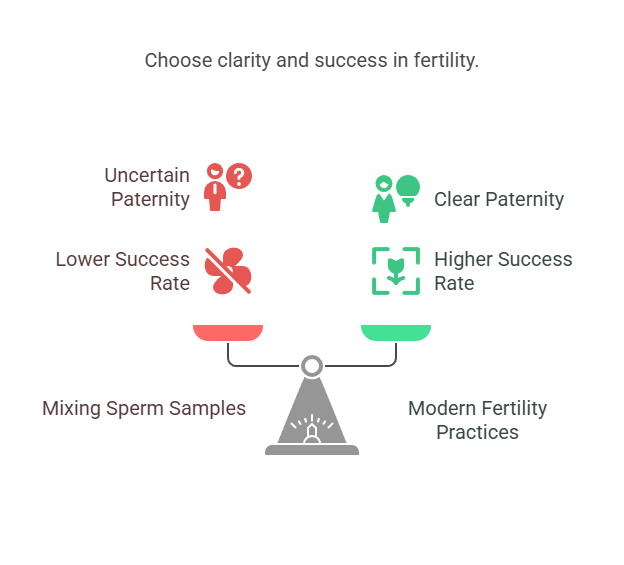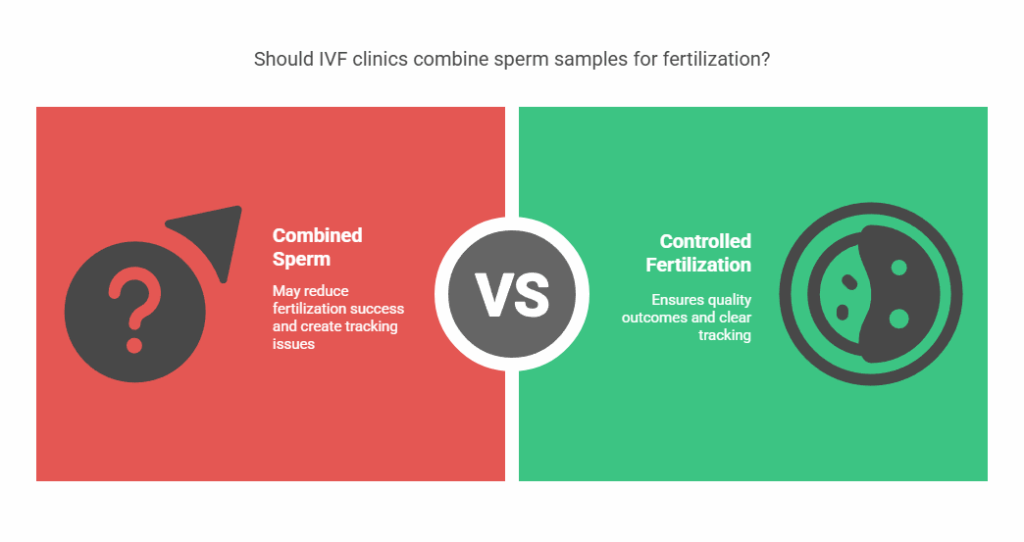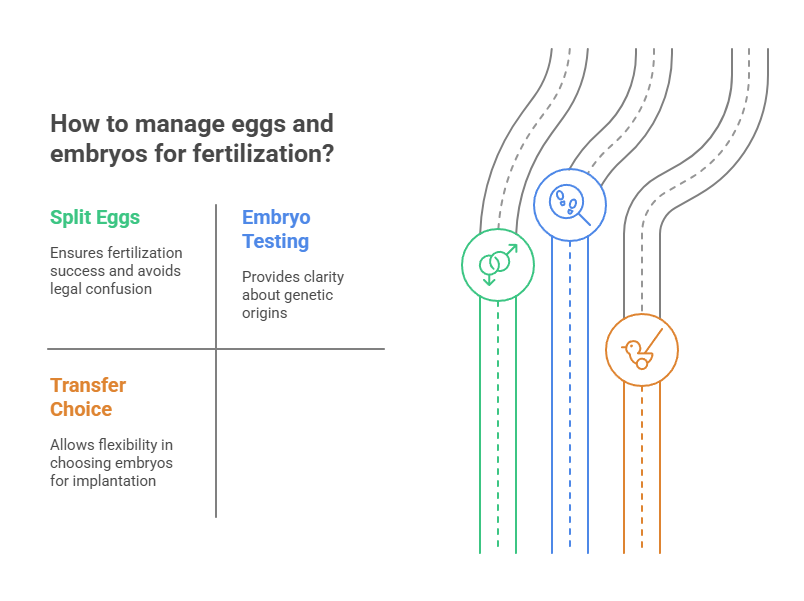Short answer:
Yes, it is possible to mix sperm samples in surrogacy — but it comes with limitations, risks, and considerations.
More commonly, intended parents choose to fertilize eggs separately with each partner’s sperm rather than physically mixing the samples.
Let’s explore how it works and what you should know.
1. What Does “Mixing Sperm” Mean in Surrogacy?
When people ask if they can mix sperm, they usually mean:
- Two male partners (often in a same-sex couple) want to both contribute sperm for their surrogacy journey.
- They hope to fertilize embryos without knowing which partner is the biological father.
- Sometimes they suggest physically combining both sperm samples and using them together to fertilize the eggs.
Technically, yes—you can mix the sperm samples, but it’s not usually recommended.
Instead, modern fertility practices offer better alternatives.

2. Why Mixing Sperm Directly Isn’t Ideal
Most IVF clinics don’t recommend literally combining sperm samples in a single fertilization attempt. Here’s why:
- Fertilization efficiency: Mixed samples can create competition between sperm, reducing overall fertilization success.
- Embryo tracking: It makes it impossible to know which embryo came from which partner — this can create legal or emotional issues later.
- Medical precision: Clinics prefer controlled fertilization to ensure quality outcomes.

3. The Recommended Approach: Separate Fertilization
The best practice for gay couples or situations involving two sperm providers is:
- Split the eggs: Half of the retrieved eggs are fertilized with Partner A’s sperm, half with Partner B’s sperm.
- Embryo testing: Each embryo is clearly labeled and tracked.
- Transfer: You can choose to implant an embryo from one partner, or even embryos from both (if a double embryo transfer is used).
Advantages:
✅ Maintains fertilization success rates
✅ Avoids legal confusion
✅ Offers clarity about genetic origins (important for the child later)
More: The Role of IVF in Surrogacy: What Intended Parents Should Know

4. Can You Still Leave It to Chance?
If the goal is for the couple not to know whose embryo was transferred (to preserve mystery), you can ask the clinic to:
- Randomize which embryo is transferred
- Withhold genetic origin information from you and your surrogate
This approach keeps the experience fair and emotionally balanced, while still using best IVF practices.
5. Conclusion
Yes, you can mix sperm in surrogacy—but most clinics don’t recommend physically combining samples.
A far more effective and commonly used method is to fertilize eggs separately with each partner’s sperm, then transfer an embryo without knowing whose it is (if desired).
If you’re considering this approach, talk openly with your IVF clinic—they can help you design the right plan based on your emotional, legal, and medical goals.




